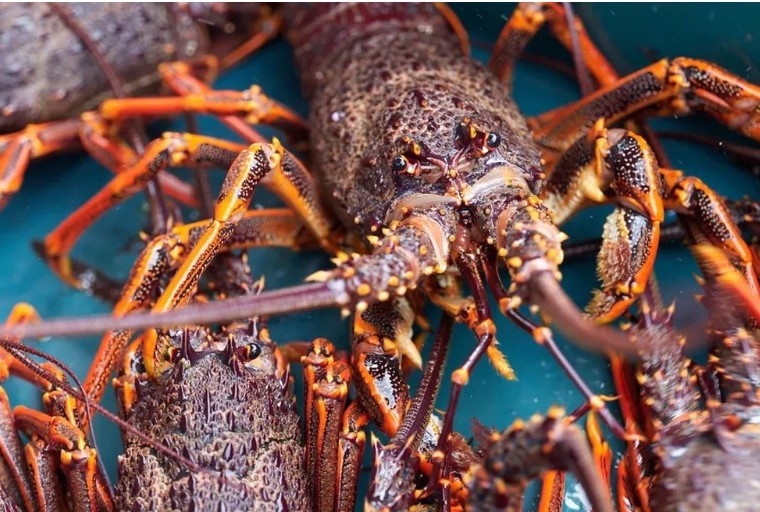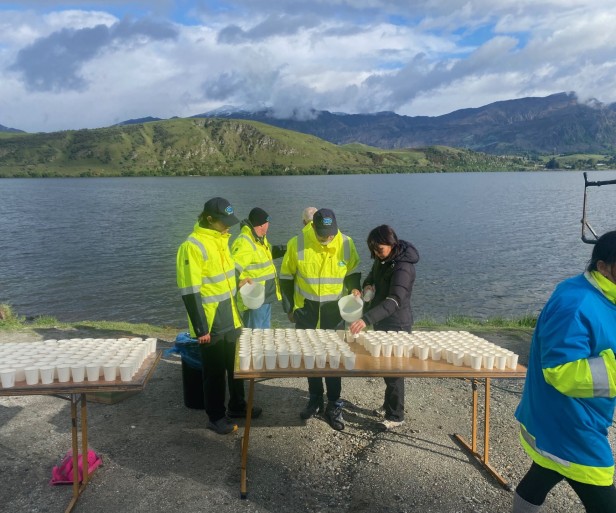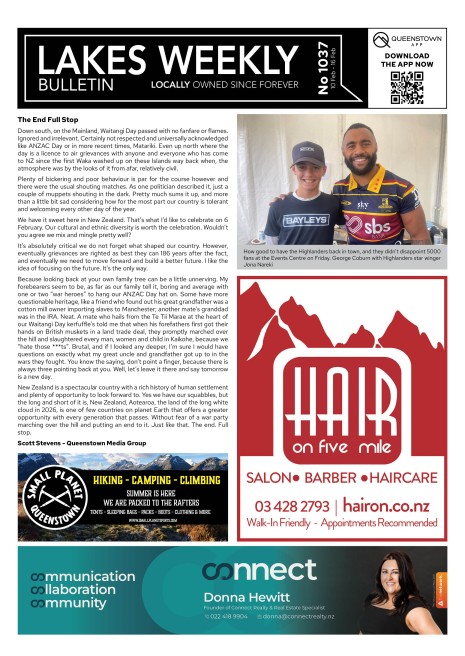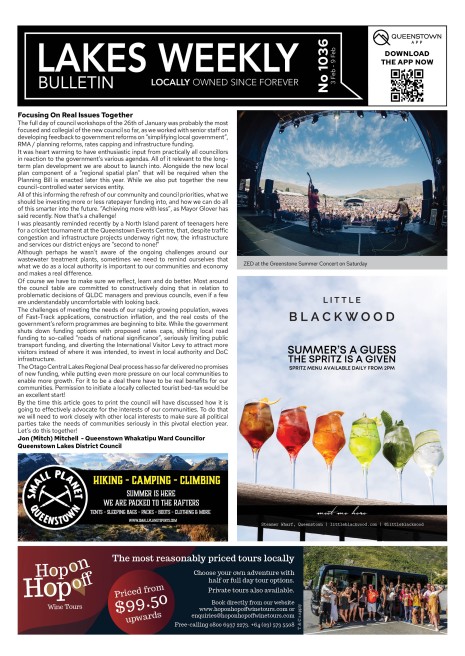Queenstown hotelier's false claims revealed after heli-crayfish case

Katie Todd, RNZ Otago / Southland reporter
A Queenstown hotelier made a string of false claims, after the business's luxury "heli-crayfish experience" caught the attention of fisheries officers, documents show.
Rees Management Limited, which trades as The Rees Hotel, was fined $22,000 in July for illegally selling recreationally caught crayfish and failing to keep records.
Company chief executive Mark Rose was discharged without conviction.
Guests paid between $4650-7750 to fly to a remote location in Fiordland or the West Coast, and watch a diver, who had been paid $800 cash, take the maximum recreational limit of six crayfish, while they were entertained with crayfish facts and photo opportunities.
Back at the hotel, for another $100 each, the guests would enjoy the crayfish as part of a two, three or four-course evening meal.
According to a summary of facts released to RNZ by the Ministry for Primary Industries (MPI) under an Official Information Act request, the hotel organised at least six heli-crayfishing trips in 2021 and 2022, after it was warned that the experience breached the Fisheries Act.
Rose falsely told Fisheries New Zealand that divers were not paid for the trips, that they dined alongside guests and that three uninvoiced crayfish tails found in the hotel's freezer were a gift dropped off by a "mate".
Both Rose and Fisheries New Zealand declined to comment to RNZ.
Repeated warnings disregarded
According to the summary of facts, the heli-crayfish experience first caught the attention of Fisheries New Zealand in 2021.
District team leader and fishery officer Ian Henderson wrote to Rose on 29 November, warning him the hotel needed a commercial fishing permit to sell fish.
"I therefore require you to cease offering and advertising 'The Rees Ultimate Heli-Crayfish Dining Experience' package, as it is currently presented," he said.
Rose called Henderson the next day, stating he could not see what his company was doing wrong.
He told Henderson that divers went with guests on the excursions "to take crayfish on their behalf" and then had dinner with them, with "no charge for this".
Henderson re-iterated the requirements, telling Rose that any use of fish in commercial premises was deemed to be a "sale" under the Fisheries Act.
Fisheries New Zealand later found that, "contrary to what the director advised", the divers were paid $800 cash to take their daily recreational entitlement.
It also found the crayfish had been prepared by chefs and served to guests at the hotel, without the divers being present.
Missing records
In December 2021, Rose wrote to Henderson, agreeing to make the trips legally compliant, but Fisheries New Zealand said the hotel "persisted with its actions" and failed to keep any required records of the crayfish.
Ten days after Rose's email, the hotel provided another heli-crayfish experience to three guests at a total cost of $7750 and did not keep any invoices.
Fisheries officers who inspected the hotel in January 2022 did not find any "non-compliance" and were assured any future crayfish would be bought from legitimate sources.
After the hotel sold five more heli-crayfish experiences without invoices - two of which Rose joined - fisheries officers conducted another inspection in December 2022.
The summary of facts showed the officers unearthed three uninvoiced crayfish tails in a freezer, two of which were labelled "crayfish-heli crayfish".
Rose claimed they were a personal gift from a friend for a barbecue, saying, "I actually get given quite a bit of produce by mates", but Fisheries New Zealand said the friend denied that was the case.
Rose made one known attempt to source crayfish legally, instructing the chef to buy crayfish before an intended heli-crayfish trip in December 2022.
In an email about that time, Rose told Fisheries New Zealand: "You are putting a lot of time and energy into this investigation, so there is obviously something going on."
Legal bill lands
In July 2025, the court convicted and fined Rees Management Ltd $3000 on each of four charges under the Fisheries Act for unlawfully possessing fish for sale.
The court also convicted and fined the company $10,000 on one representative charge of being a dealer in fish and failing to keep invoices of all fish acquired.
MPI said the lack of records made it hard to quantify the scale of the offending, but in the summary of facts, it said the rules were made for a reason.
"Those who take fish commercially outside of this framework undermine the sustainable management of the fishery, [and] avoid the compliance costs, reporting obligations and monitoring oversight that lawfully authorised commercial fishers operate under."
It said illicitly sourced crayfish gave offenders an economic edge over licensed operators and deprived legitimate dealers of market opportunities.









